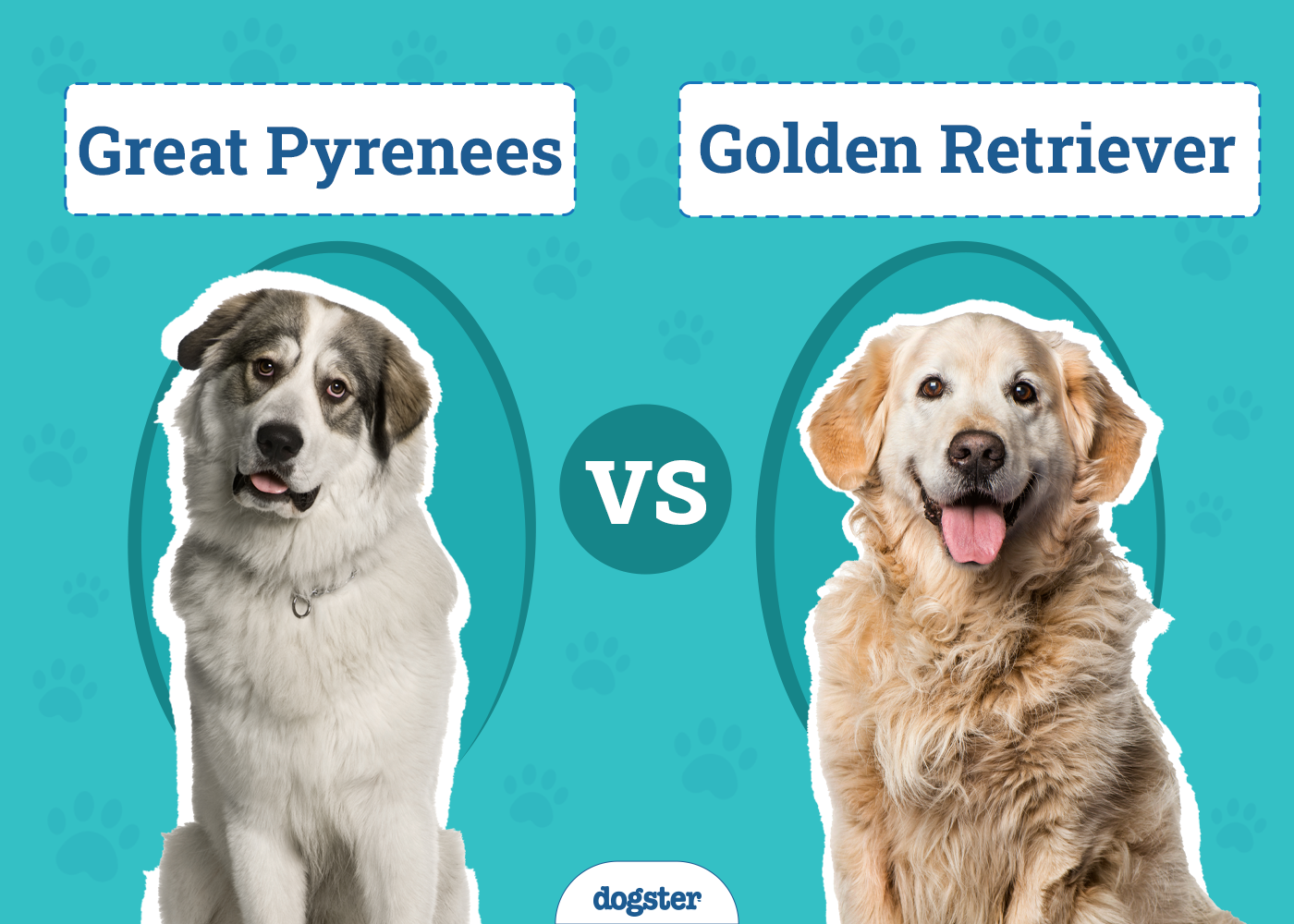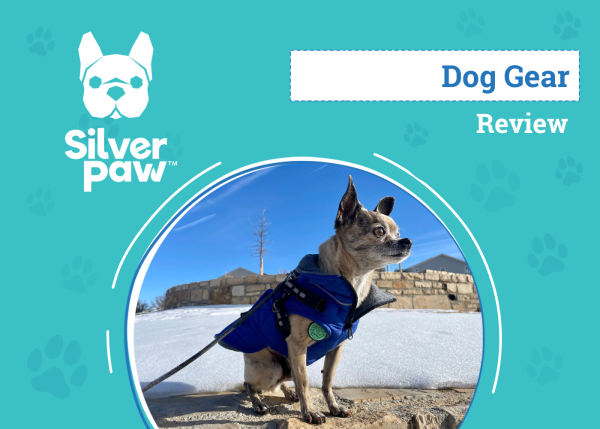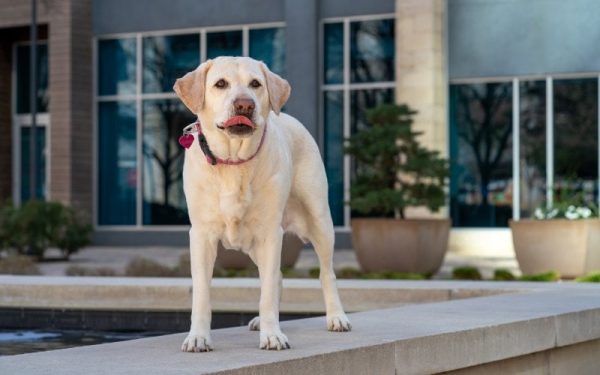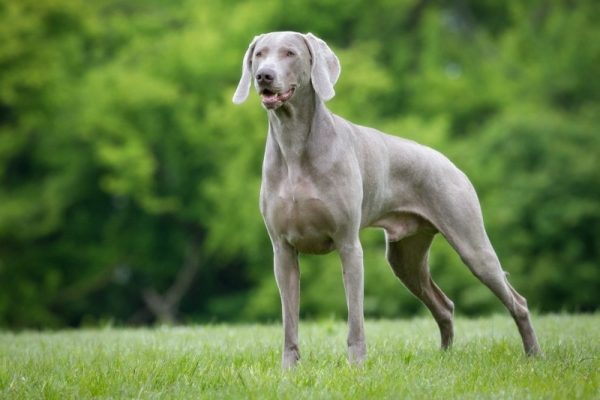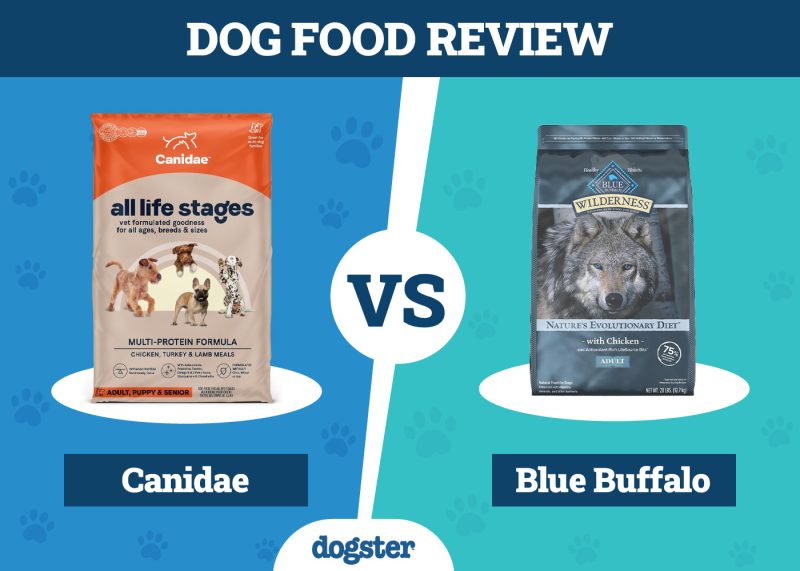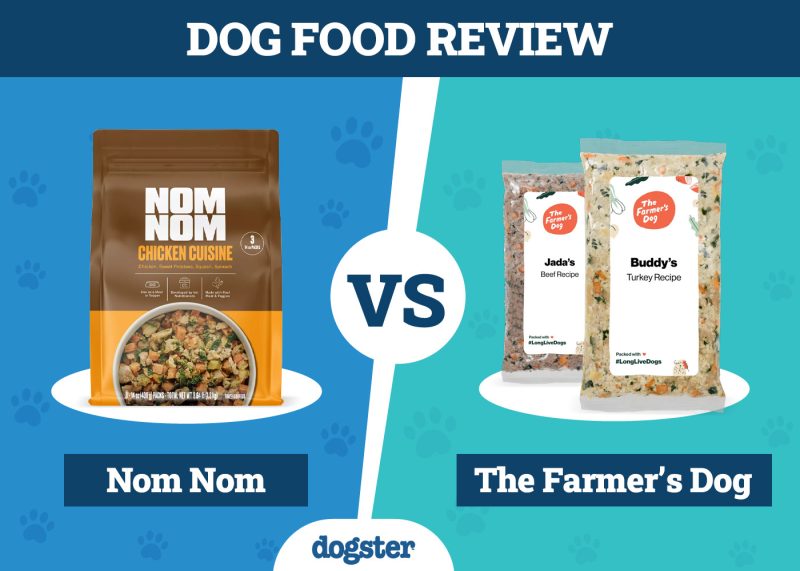In this article
View 3 More +Selecting the ideal dog for your home can be challenging, but it’s easier when you’ve narrowed down your choices. If you love gentle, long-haired dogs that make excellent family companions, the Golden Retriever and Great Pyrenees certainly fit the bill. They’re remarkable canines, and while they share many similarities, they have a few differences to mention. In this article, you’ll learn everything you need to know about the Golden Retriever and Great Pyrenees.

Visual Differences
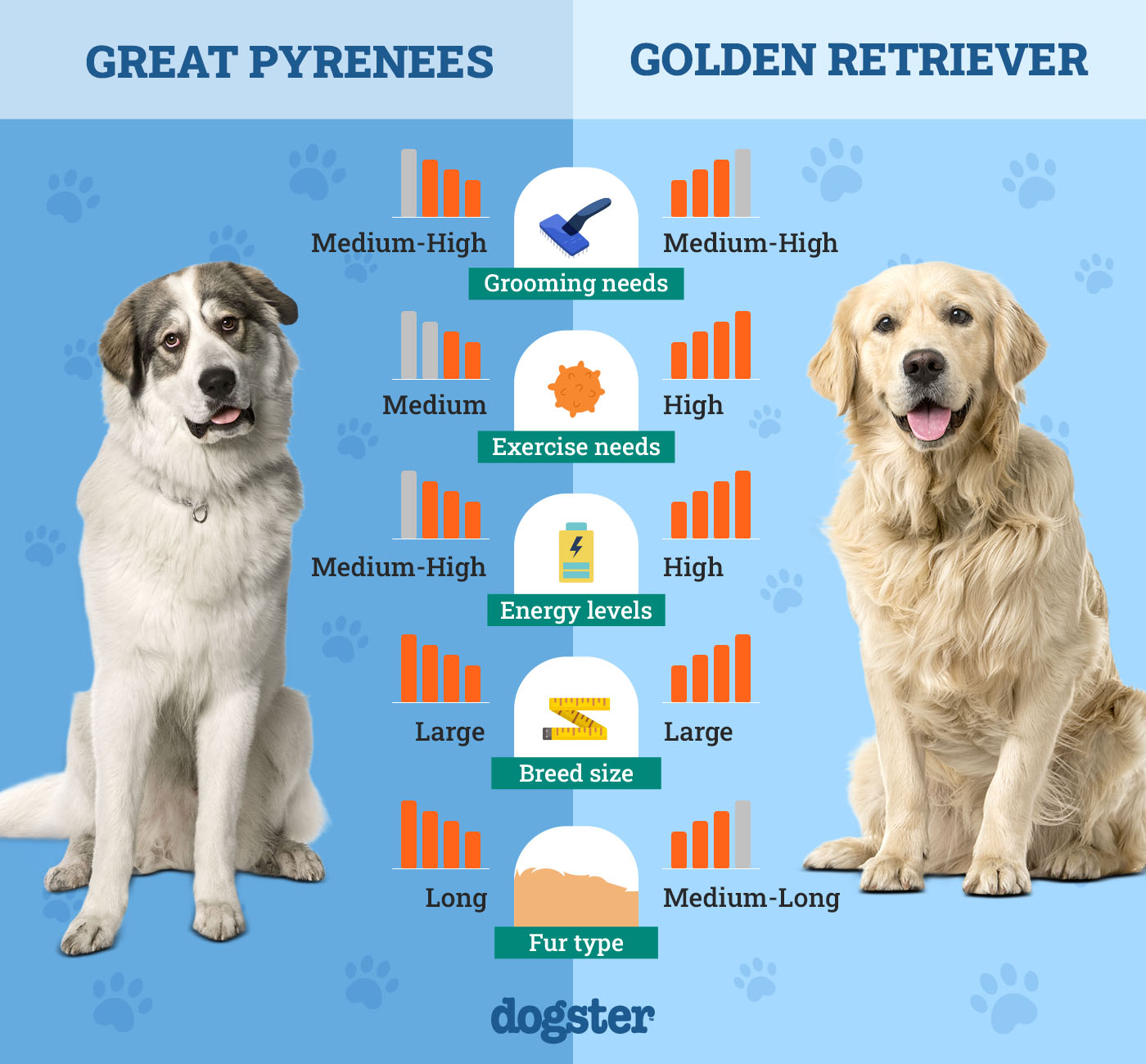
At a Glance
- Average height (adult): 26–32 inches
- Average weight (adult): 85–160 pounds
- Lifespan: 10–12 years
- Exercise: 40+ minutes a day
- Grooming needs: Heavy
- Family-friendly: Yes
- Other pet-friendly: Often
- Trainability: Docile, intelligent, great judge of character
- Average height (adult): 20–24 inches
- Average weight (adult): 55–75 pounds
- Lifespan: 10 years
- Exercise: 1 hour a day
- Grooming needs: Moderate
- Family-friendly: Yes
- Other pet-friendly: Often
- Trainability: Stranger-friendly, gentle, intelligent

Great Pyrenees Overview
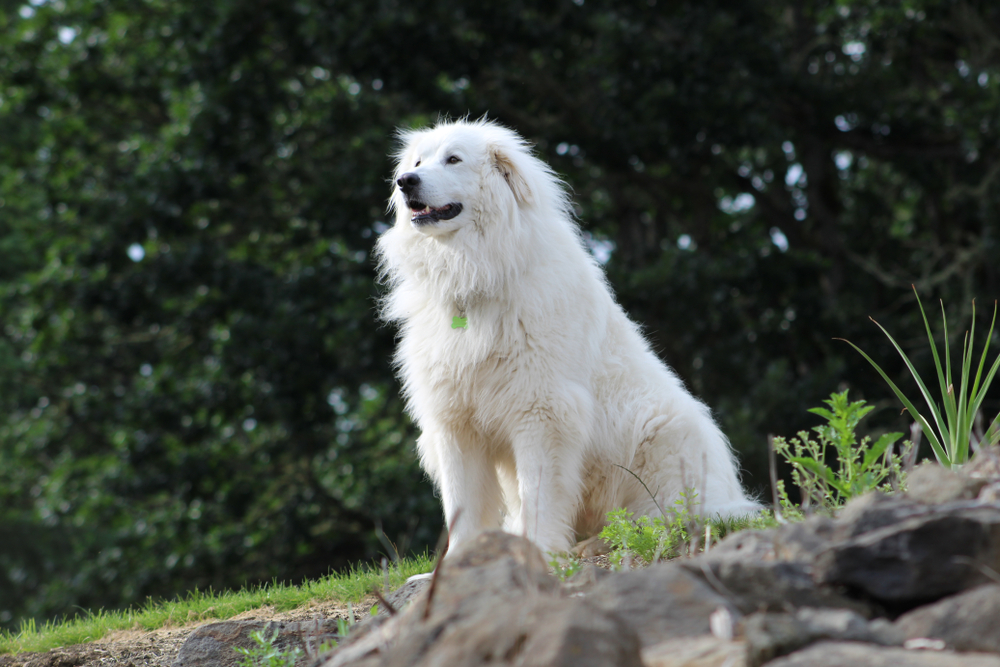
The Great Pyrenees is a guardian and protector. They have a solid reputation in farming communities for protecting flocks, herds, and other animals from predators. In addition to their work ethic, they enjoy the family lifestyle.
If you are familiar with this breed, you might know that they love the outdoors. They’re ideal for rural settings because they love staying in their perimeter without wandering off, protecting everything around the home.
The Great Pyrenees also loves the colder temperatures. While they might enjoy cozying up with their favorite humans, they equally enjoy roaming the property and enjoying the great outdoors.
Personality / Character
The Great Pyrenees might be large and sturdy, but they are big teddy bears with lots of love to give. With kind hearts and terrific discernment, they keep a protective yet composed outlook on pack life with their people.
They are affectionate and get along with all age groups. Often, they make excellent first “best friends” for children and irreplaceable companions in homes. The Great Pyrenees will have no trouble alerting you that a stranger is near but will meet them with tails wagging—unless they feel a direct threat.
If you have a hyper pup, they might not realize their size until they grow into their feet. Therefore, they must be supervised when interacting with toddlers.
Training
Training should be relatively easy since the Great Pyrenees are a cooperative breed. They are incredibly brilliant and pick up on concepts quickly. Potty training should be a breeze since they prefer the outdoors most of the time.
Advanced training is not only entirely possible but expected for the breed standard. Even though you might encounter a bull-headed Pyrenees, they are generally receptive to direction and guidance from their owner. They are guardians, and they will gladly do the job as directed.
Even though the Pyrenees isn’t often used in areas of service work, they can make excellent support animals. They are emotionally intuitive, easily scoping out the room’s mood without much effort. They’re loving, patient, and capable of taking on the caretaker role.
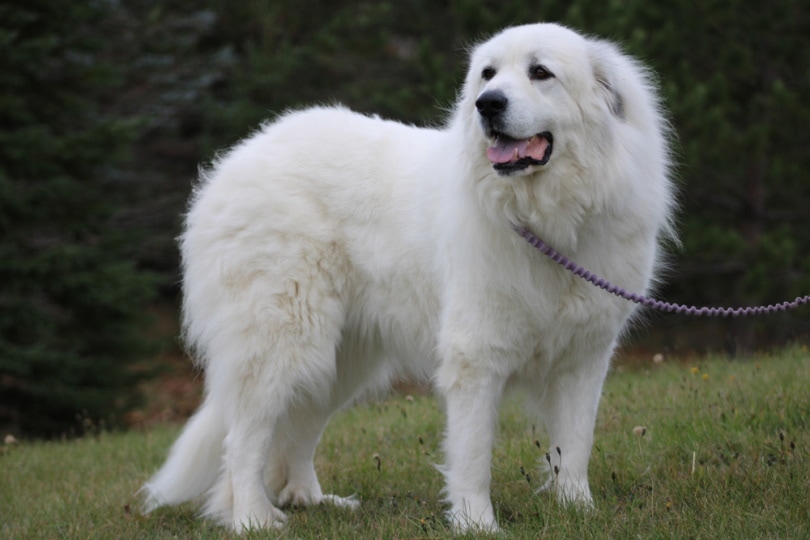
Health & Care
The Great Pyrenees are bred to be sturdy, healthy dogs that can withstand harsh elements. They are incredibly resilient to environmental factors, but they also suffer from significant health conditions.
With proper breeding and routine care, they can live full lives, primarily problem-free. As long as you provide a healthy diet, maintain veterinary appointments, exercise them every day, and show them the love they deserve, they may live 12 years or more.
That’s not to say that certain issues can’t crop up. The Great Pyrenees is more vulnerable to these health conditions:
- Entropion
- Osteosarcoma
- Skin problems
- Cataracts
- Chondrodysplasia
Grooming
The Great Pyrenees require regular brushing to reduce shedding, which increases as the seasons change.
Daily brushing is recommended to prevent mats and tangles and to remove any dirt and debris between baths. It might also be a great idea to buy a de-shedding tool to get to the undercoat, removing dead follicles to promote healthy new growth.
Like most dogs, they need a bath once every 4 to 6 weeks. They also need their ears cleaned, teeth brushed, and nails trimmed.
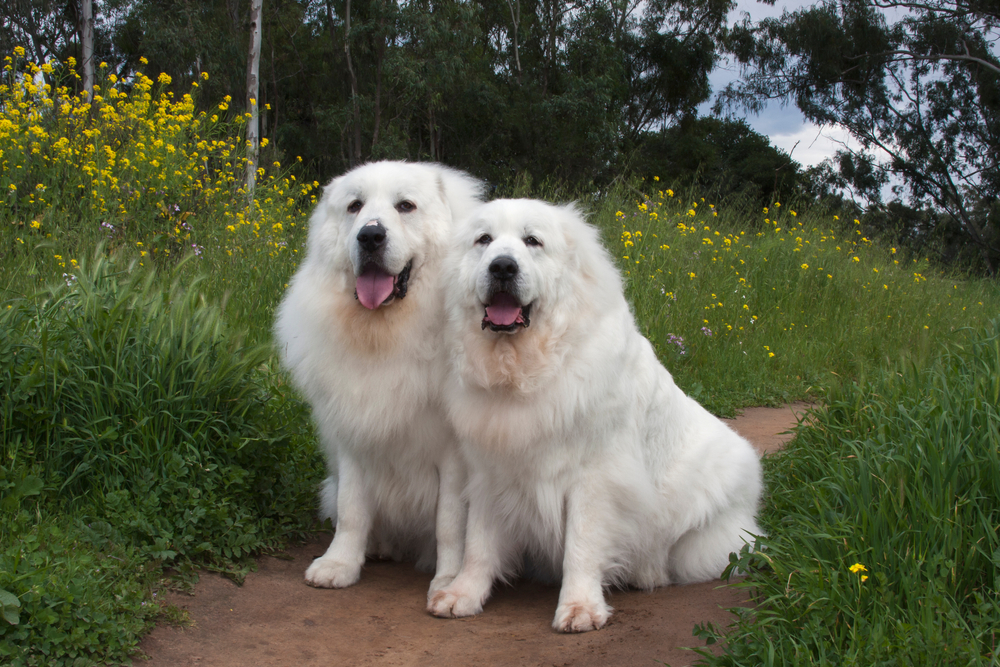
Suitable for:
The Great Pyrenees is a terrific playmate for older kids, an efficient guardian of livestock and property, and an incredible pet for families. If you’re looking for a furry farm hand or outdoor watcher, you couldn’t pick a better pup. They get along with children and other pets if they’re trained and socialized properly.
Not for:
If you have limited mobility, physical restrictions, dog allergies, or tiny kids, the Great Pyrenees may not be the ideal pet. Also, due to their massive size and desire to wander, they don’t make excellent candidates for apartment or city living.

Golden Retriever Overview

The Golden Retriever might have started out as a hunting dog, but they have come so far since then. These American favorites are adopted all the time for their friendly demeanor, intelligence, and acts of service to mankind.
Goldens are very dependent on their owners and dislike being left alone. They will want to tag along for all the adventures you come up with. However, they acclimate well to almost any living situation.
Once you have a Golden as part of the family, it will be hard to imagine life without one. Goldens are popular for so many good reasons!
Personality / Character
The Golden Retriever didn’t become a favorite everywhere because of a lack of personality. They are incredibly good-spirited, intelligent dogs that adapt beautifully to nearly every social situation. They get along well with children and other pets and usually become best friends with everyone in the house.
Some Goldens can be a bit more boisterous than others, but most of the time, they’re calm and affectionate. With a permanent smile, Golden Retrievers also seem to be happy.
Although they make excellent pets, they also excel at medical, emotional, and other support service roles. They are capable of learning advanced concepts and live to please their owners.
Exercise
Exercise is the best way to keep your Golden healthy. Goldens will love walks, runs, jogs, tug of war, toss, fetch, and other activities. They are the type of dog you can take to the dog park to run off some steam. They typically do amazingly well with other canines—even strange ones!
Goldens will need lots of room to run and exercise when they are young, and as adults, they need an hour to 1½ hours of daily exercise. Their exercise demands can be a little high if you don’t get out of the house much.
Since some Goldens are prone to obesity, it’s ideal to start a good exercise regimen when they’re young. It will reduce the likelihood of obesity, which can increase other health risks.

Training
Golden Retrievers are easy to train and usually enjoy learning new tricks and commands. They can retain so much information and have so many hidden talents! All dogs are relatively smart, but Goldens take it to a whole new level. They excel at service and emotional support work and have a special knack for picking up emotional and physical body cues that can warn people of oncoming diabetic attacks, increases in anxiety, and all sorts of other problems we face.
Along with Labrador Retrievers and German Shepherds, Golden Retrievers are the most common dogs used for service purposes. Goldens are excellent for this role because they don’t get tense or nervous in high-stress situations.
Health & Care
Healthcare for every Goldie will be different based on their lifestyle, diet, and other environmental or genetic factors. Unfortunately, they are vulnerable to several health conditions.
Your Golden will get to know your vet very well during the first year of life. They will need all their shots, microchipping, and spay or neuter surgery.
The most common issues Goldens face include:
- Cancer
- Hip and elbow dysplasia
- Skin conditions
- Allergies
- Luxating patella
- Obesity
Grooming
Your Golden will love their trips to a professional groomer to get spruced up and pampered. They have long, feathery hair that requires daily brushing to remove loose hair and reduce shedding. Their coats are definitely not allergy-friendly.
If you want a Golden but don’t want to deal with the allergy triggers, consider a Goldendoodle, which is a Golden Retriever mixed with a Poodle. They can retain the hypoallergenic qualities of the Poodle parent in most cases—but it’s never 100%.
Like other dogs, your Golden needs a bath every 4 to 6 weeks, preferably with an all-natural shampoo to prevent allergic reactions.
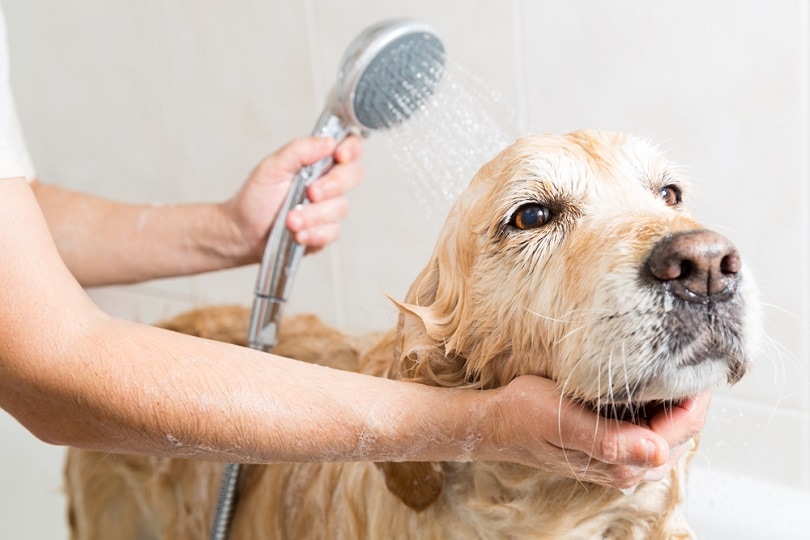
Suitable for:
Golden retrievers are fantastic for any living situation or loving owner. They make excellent companions for children and seniors and make terrific service dogs. They’re affectionate, intelligent, and playful, and they will always brighten your day.
Not for:
Unfortunately, Golden Retrievers do not make excellent companions for allergy sufferers or apartment dwellers.

Which Breed Is Right for You?
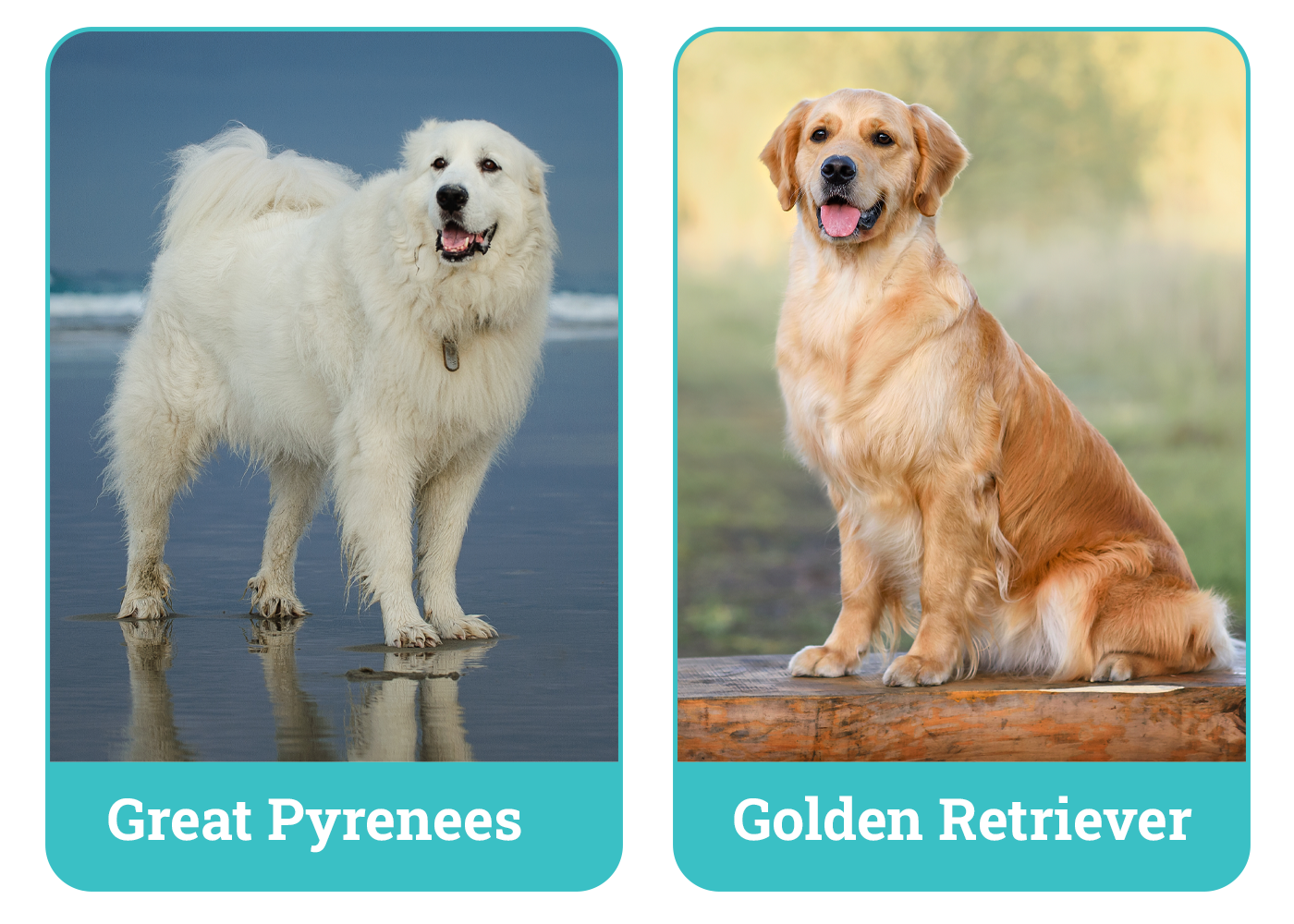
These gentle dogs make amazing family companions, but it depends on what works best for your lifestyle and living situations. Neither dog makes an excellent apartment dog because of their size, but the Great Pyrenees enjoy outdoor living much more than Goldens.
No matter which one of these awesome dogs you choose, you will surely have a best buddy for years to come. There is no wrong choice; it’s just a matter of preference and compatibility!
See Also:
Featured Image Credit: Top – Tychon Krug, Pexels | Bottom – Svetozar Milashevich, Pexels
